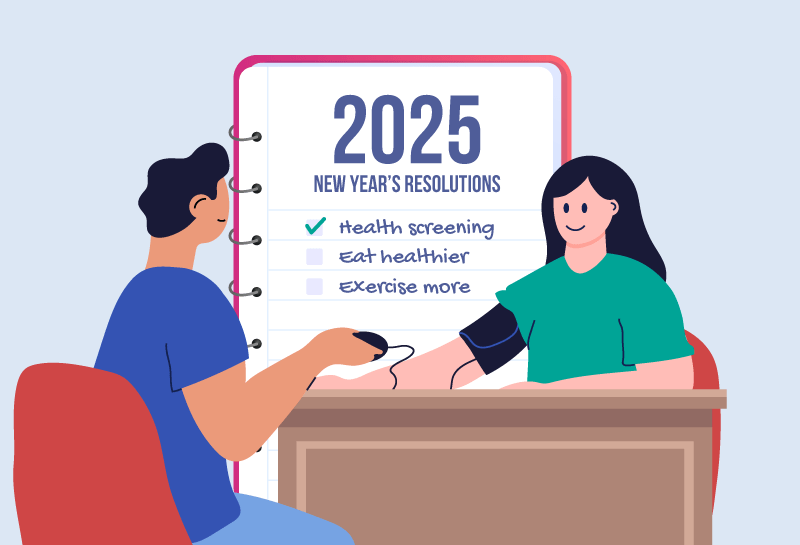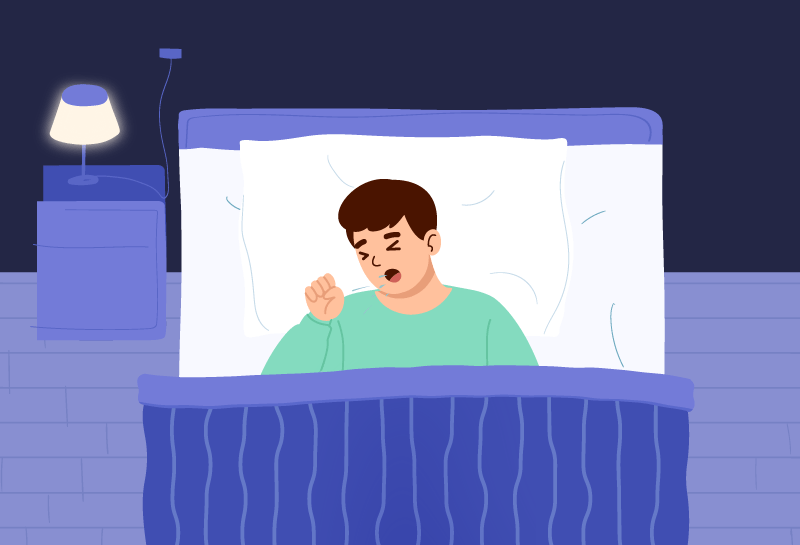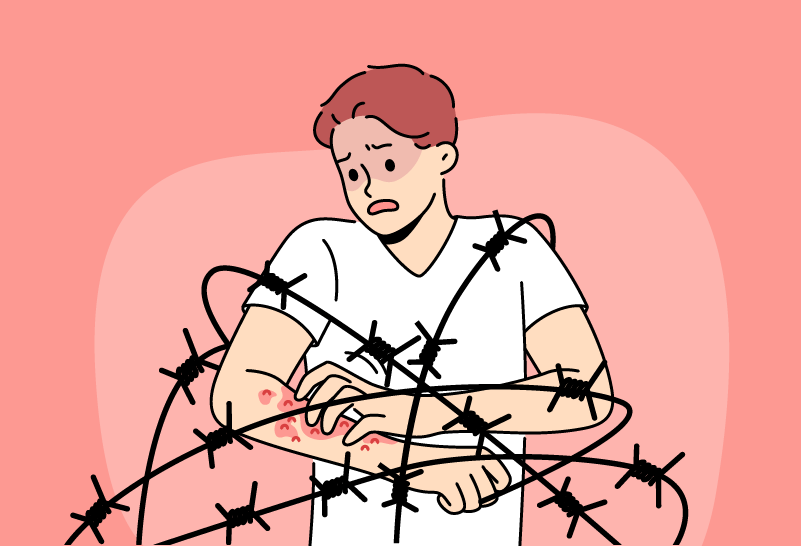Vascular dementia is a silent epidemic that rarely gets the attention it deserves, and that’s a problem. While Alzheimer’s disease dominates the conversation, vascular dementia quietly affects millions, often without people realising what’s happening. Imagine forgetting familiar names, losing focus easily, or suddenly struggling with tasks that once felt second nature. It’s not just ageing, but it could be the start of something more serious. In this article, we shed light on this often-overlooked condition, explain what to watch for, and highlight why early action is crucial to protecting brain health. Don’t wait for symptoms to worse. Read on to learn when to seek help and how to stay ahead.

EXPERT INSIGHT
Vascular dementia and Alzheimer’s disease are two of the most common forms of dementia, but they can differ in several key ways. Vascular dementia is primarily caused by reduced blood flow to the brain, which can result from narrowed blood vessels or small strokes, known as lacunae infarcts. This reduced blood flow is often visible on MRI scans as changes in the deep white matter of the brain. As mentioned by Dr Chan, depending on the speed at which these changes occur, the onset of symptoms can be gradual, similar to Alzheimer’s, or happen more suddenly.
The symptoms of vascular dementia typically include impaired judgement, difficulty with planning, and slowed thinking, particularly with recent events. In contrast, Alzhemier’s disease is marked by the accumulation of abnormal proteins such as amyloid plaques and tau proteins, which lead to memory loss as an early symptom.
The progression of vascular dementia is often stepwise, with noticeable declines following vascular events, while Alzheimer’s tends to progress in a more steady, gradual manner. Additionally, vascular dementia may be present with physical symptoms such as difficulty walking or maintaining balance, which can increase the risk of falls, depending on the affected areas of the brain.
The symptoms you shouldn’t ignore
Vascular dementia often begins with subtle changes that can be easily overlooked or attributed to normal ageing. However, certain symptoms should raise an immediate red flag. If you notice any of the following, it’s crucial to seek help from a healthcare provider as soon as possible.

Memory lapses
Forgetting names, important dates, or even familiar locations could signal cognitive decline.

Difficulty with daily tasks
Struggling with activities that were once easy such as cooking, driving, or managing finances, may indicate something more serious.

Concentration issues
Trouble focusing on conversations or work is another sign of possible brain dysfunction.

Mood swings
Sudden irritability, depression, or apathy could be linked to vascular dementia.

Walking and balance issues
Difficulty walking, frequent falls, or an unsteady gait can be warning signs.

Disorientation
Confusion about location, time, or people may point to early cognitive decline.
If any of these symptoms appear suddenly, particularly after a stroke or a transient ischemic attack (TIA), also known as a mini-stroke, it’s crucial to consult a neurologist or geriatrician with expertise in dementia immediately. The earlier you seek help, the more options are available to slow the progression of the disease and improve quality of life.

EXPERT TIP
For individuals with vascular risk factors like hypertension, diabetes, or high cholesterol, it’s important to closely monitor blood pressure, glucose levels, and cholesterol. Paying attention to gait stability, sleep patterns, and exercise routines is essential for maintaining overall brain and body health.
As Dr Chan advises, checking in with healthcare professionals at least once a year, or more frequently if noticeable cognitive changes arise, can lead to timely interventions. Early discussion with healthcare professionals are key to addressing concerns before they progress.
The role of healthcare professionals in diagnosis and care
A neurologist or geriatrician with expertise in dementia can offer valuable insights into vascular dementia. Here’s what typically happens during a consultation:

Comprehensive assessment
The doctor will review the person’s medical and family history, ask about symptoms, and perform a physical exam. Conditions like hypertension or diabetes, which are risk factors for vascular dementia, will be evaluated.

Brain imaging and cognitive tests
The doctor may order CT scans, MRIs, or cognitive tests to examine how well the brain is functioning.

Treatment recommendations
While there’s no cure for vascular dementia, treatment focuses on managing the underlying causes, such as hypertension or diabetes, to prevent further brain damage. Medications may also be prescribed to manage symptoms or support brain function.

EXPERT TIP
For individuals noticing cognitive changes, but unsure if it’s dementia, it’s crucial to approach healthcare providers with openness and clarity. Here’s how to take the first steps:
- Document observations: Keep a record of any cognitive changes, such as memory lapses, trouble concentrating, or difficulty with problem-solving. Include specific examples and note when these changes begin to help provide clearer picture.
- Schedule a visit: Make an appointment with your primary care provider specifically to discuss cognitive concerns. Mention that you’d like to focus on these issues so that extra time can be allocated for the consultation.
- Be honest and direct: Share all observations, even those that may seem minor. Describing how these changes are impacting daily life is key in helping the provider understand the full scope of the issue.
- Ask questions: Inquire about the possible causes and next steps. Useful questions to ask might include, “Could this be due to ageing, stress, or something else?” or “What tests can help clarify the cause of these changes?”
- Bring a support person: It can be helpful to bring along a trusted friend or family member to provide additional insights and help remember the details of the conversation.
- Expect testing: Be prepared for potential blood tests and brain scans, as recommended by your doctor. These tests are important in differentiating between age-related changes and the early signs of dementia.
- Follow up: If your doctor recommends tests or referrals, ensure that these are completed. Regular follow-up appointments are important for monitoring any changes over time and ensuring timely intervention.
What to do if diagnosed with vascular dementia
Being diagnosed with vascular dementia can feel overwhelming, but understanding the next steps is essential in managing the condition. If you or a loved one has received a diagnosis, consider these key actions:

Follow a treatment plan
Work closely with your healthcare provider to manage underlying conditions such as hypertension, diabetes, or high cholesterol, which can contribute to disease progression. Regular follow-up appointments are essential for monitoring progress and adjusting treatments as needed.

Engage in cognitive therapy
Cognitive rehabilitation can help manage daily challenges by teaching strategies to compensate for memory loss, improve problem-solving skills, and stay mentally engaged through targeted exercises.

Maintain a structured routine
A consistent daily routine can reduce confusion and anxiety. Keep essential items designated places, using written reminders, and relying on calendars or memory aids can support independence.

Seek emotional and social support
Connecting with family, friends, or support groups can provide emotional assurance and practical assistance. Professional counselling or therapy may also help in coping with the emotional impact of the diagnosis.

Plan for the future
As vascular dementia progresses, it’s important to make long-term decisions regarding finances, care, and living arrangements. Open discussions with family and loved ones can help ensure that plans align with personal preferences and needs.

EXPERT INSIGHT
Vascular dementia can significantly impact a person’s daily life, affecting both cognitive abilities and physical functioning. Early on, individuals may experience memory impairment, becoming repetitive or misplacing items around the house. As the condition progresses, difficulties with concentration and decision-making arise, making tasks such as managing finances, following instructions, and learning new routines challenging. Navigating unfamiliar environments may also become increasingly difficult, leading to a higher risk of getting lost.
In addition to cognitive changes, individuals with vascular dementia may experience physical symptoms including mobility issues, speech difficulties, and even changes in facial expressions or swallowing impairments. Emotional and behavioural changes such as mood swings, irritability, or depression are common, and these can strain relationships and social interactions. As the condition advances, routine tasks like cooking, shopping, or personal hygiene may require assistance. Disrupted sleep patterns and confusion about time and place are also frequently observed.
To improve the quality of life for those living with vascular dementia, practical changes can be made both at home and within the community. Here are some suggestions:
At home:
- Simplify the environment: Reduce clutter and organise spaces to make navigation easier. Label drawers and cupboards to provide clarity.
- Differentiate between day and night: Ensure the living environment is bright during the day and dark at night by adjusting window coverings.
- Safety measures: Install grab bars in bathrooms, remove tripping hazards, and ensure that lighting is adequate throughout the home.
- Memory aids: Use calendars, whiteboards, or digital reminders to help manage daily routines and appointments.
- Comfortable spaces: Create a calm and familiar environment with personal items, photos, and soothing colours to enhance comfort.
- Accessible technology: Introduce user-friendly devices such as voice-activated assistants or simplified remote controls to assist with communication or entertainment.
For individuals with more advanced symptoms, caregivers and family members should be trained to understand the behaviour associated with the condition, how to communicate effectively, and how to provide support without provoking frustration.
In the community:
- Support groups: Encourage participation in local dementia support groups to foster social interaction and shared experiences.
- Accessible facilities: Advocate for dementia-friendly public spaces that have clear signage and staff trained to assist individuals with cognitive impairments.
- Engaging activities: Look for community programs offering music, art, or gentle exercise tailored to cognitive and physical abilities.
- Transportation assistance: Arrange for accessible transportation options to help maintain independence and mobility.
As Dr Chan highlights, making these adjustments at home and in the community can significantly enhance the daily lives of individuals with vascular dementia, promoting their independence and wellbeing.
Lifestyle and diet tips to slow the progression of vascular dementia
While vascular dementia cannot always be cured, specific lifestyle and diet modifications can help slow its progression and prevent further brain damage. Here are some key steps to help manage the disease:

Manage blood pressure
Hypertension is the most significant risk factor for vascular dementia. Keeping blood pressure within a healthy range is crucial, ideally between 120-129/80-84 mmHg to help reduce the risk. Regular home monitoring can help track fluctuations. If your blood pressure is high, follow your doctor’s recommendations and take prescribed medications as directed. Lifestyle changes that support health blood pressure include:
- Reducing salt intake: Opt for fresh, whole foods over processed ones, which are often high in sodium.
- Regular exercise: Aim for at least 30 minutes of moderate intensity exercise most days of the week, such as brisk walking, swimming or cycling, to help lower blood pressure.

Manage diabetes and cholesterol
Keeping diabetes and high cholesterol in check helps prevent further vascular damage. Maintain a balanced diet, exercise regularly, monitor your levels, and take prescribed medications as directed.

Engage in cognitive activities
Mental stimulation plays a crucial role in managing vascular dementia. Engaging in brain-challenging activities daily can help maintain cognitive function. Consider:
- Puzzles and games: Crosswords, Sudoku, chess, and other brain exercises keep the mind active.
- Learning new skills: Taking up a new hobby such as learning a new language or playing an instrument stimulates the brain.
- Social interaction: Regular engagement with friends and family can provide mental stimulation and combat isolation, which can worsen dementia symptoms.
- Card games: Playing card games like Rummikub (Rummy O) enhances concentration and strategic thinking. Rummy O, in particular, encourages memory retention, attention to detail, and social interaction.

Incorporate art therapy
Art therapy provides a creative and therapeutic way to manage vascular dementia symptoms. Activities such as painting, drawing, or sculpting not only boost mood but also stimulate cognitive functions. The process of creating art can enhance memory, communication, and also problem-solving skills. Moreover, art therapy offers a form of self-expression that can reduce stress and anxiety, improving the overall wellbeing.
Viewing art in a calming environment can also help trigger memories and emotions, providing a soothing and therapeutic experience. For individuals with vascular dementia, this type of engagement offers a valuable non-verbal way to connect with their feelings, memories, and experiences, especially as verbal communication becomes more challenging.

Improve sleep hygiene
Poor sleep quality can exacerbate cognitive decline. Aim for 7-9 hours of quality sleep by following these sleep-friendly habits:
- Avoid caffeine after noon: Stimulants can disrupt sleep patterns, especially later in the day.
- Create a sleep-friendly environment: Keep the bedroom dark, quiet, and cool to promote restful sleep.
- Maintain a regular sleep schedule: Going to bed and waking up at the same time daily helps regulate the body’s internal clock.

Quit smoking and limit alcohol
Both smoking and excessive alcohol consumption significantly impact vascular health and cognitive function. Quitting smoking improves circulation and reduces the risk of further brain damage. Limiting alcohol to moderate levels (one drink per day for women, two for men) can help protect brain function and overall vascular health.

EXPERT TIP
For individuals with hypertension, diabetes, or high cholesterol, there are several immediate steps to take in order to reduce the risk of vascular dementia or cognitive decline:
- Blood pressure control: Regularly monitor blood pressure and ensure it stays within a healthy range.
- Healthy diet: Adopt a brain-healthy diet that includes fruits and berries, colourful and leafy vegetables, whole grains, nuts, oily fish (for omega-3 fatty acids), and lean proteins. This kind of diet can support brain health and prevent further deterioration.
- Exercise: Aim for at least 150 minutes of moderate aerobic activity each week. Exercise improves blood circulation to the brain and promotes overall wellbeing.
- Medication adherence: Consistently take prescribed medications for hypertension, diabetes, or high cholesterol as directed. It’s crucial that not only the medications are taken, but also that blood pressure, glucose, and cholesterol levels are well-controlled.
- Lifestyle changes: Quit smoking, limit alcohol consumption, ensure adequate sleep, and engage in stress-relief activities. These lifestyle adjustments can have a significant impact on brain health.
For those with family history of vascular dementia:
Genetic factors, such as inherited conditions like cerebral small vessel disease, can increase the risk of vascular dementia. However, lifestyle factors are just as important in managing risk. For individuals with a family history, here are proactive steps to reduce risk:
- Manage risk factors: Hypertension, diabetes, and high cholesterol often runs in families. Start preventive measures like adopting a healthy lifestyle, which includes a low-salt diet, regular exercise, managing weight, avoiding smoking, and consuming alcohol in moderation.
- Regular screenings: For those with a family history of vascular issues or cognitive decline, regular screenings are essential to monitor for early signs and take action before symptoms progress.
Vascular dementia may be underrecognised, but it’s not inevitable. By understanding the symptoms and risk factors and taking early action, you can help slow its progression and improve quality of life. Don’t dismiss subtle changes in memory or behaviour, consult a healthcare professional and take control of your brain health today.
This article has been written by Healthful For You and does not represent the opinions, views, or endorsements of the Expert Contributor of this article. The Expert Contributor has solely provided expert insights and tips for informational purposes. Any interpretations, conclusions, or statements beyond these contributions are those of the author and do not reflect the views of the expert contributor. This content is intended for informational purposes only and should not be considered as medical, legal, or professional advice.



 Copied
Copied














 4 mins read
4 mins read 





